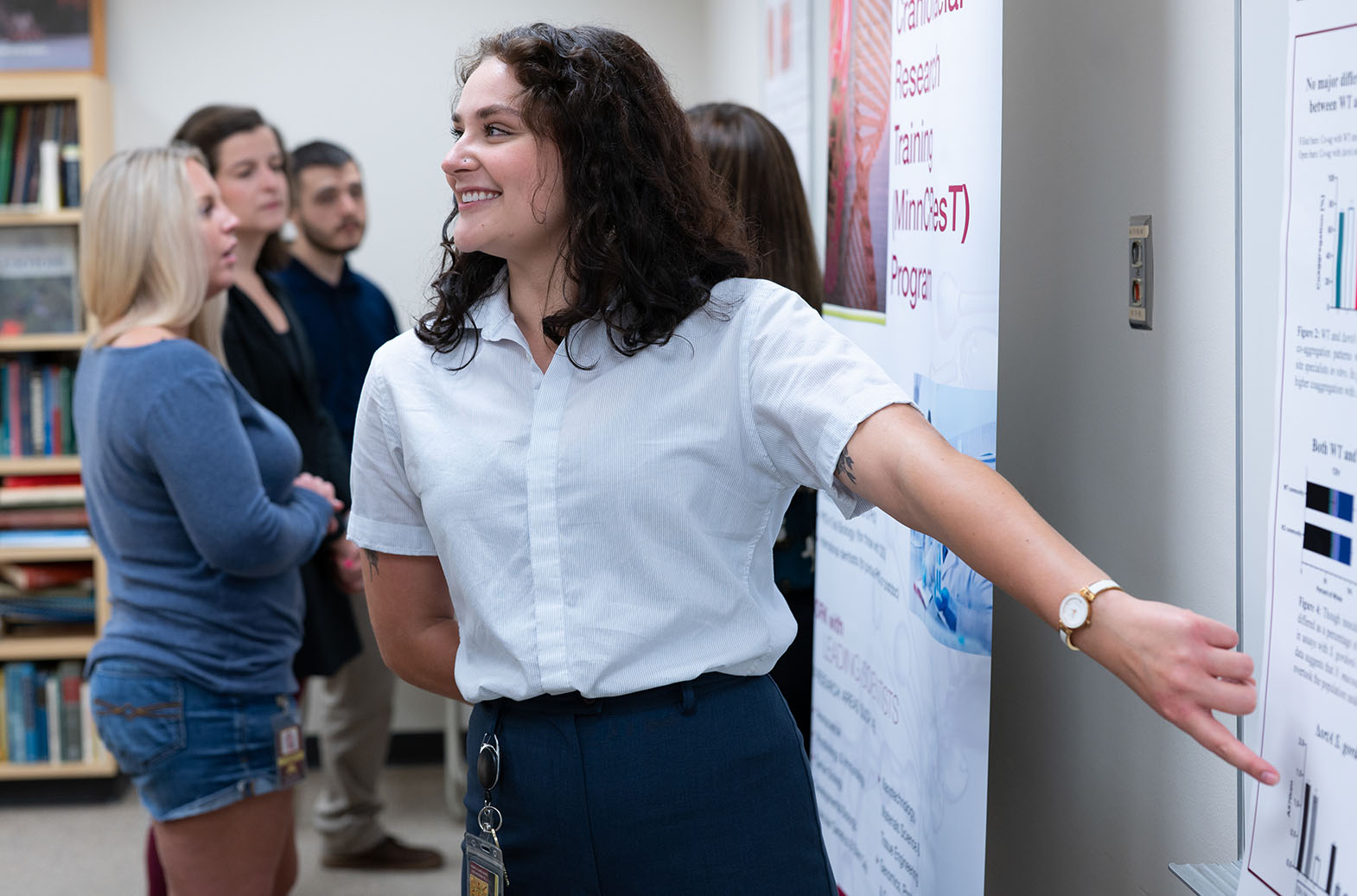DDS/PhD faculty mentors represent more than 30 disciplines, ranging from cancer biology and genomics to nanotechnology and neuroscience. The mentors are grouped into research training areas (RTAs) based on their current research activities, which are independent of their departmental or graduate faculty affiliation.
Faculty mentors attend MinnCResT monthly seminars, annual research symposia and other community-building activities. They are also involved in the review of applications and on-campus interviews of trainee candidates.
MinnCResT trainees work in their mentors’ labs but are paid through the MinnCResT program. Working together, the mentors and trainees submit an annual report describing their training experiences and research progress. The MinnCResT Steering Committee reviews and approves all reports and programs to ensure compliance with our mission.
MinnCResT faculty mentors must be:
- A full member of the University of Minnesota graduate faculty
- Maintain an established, externally-supported research program
- Committed to strong research training in craniofacial and oral biology questions
Research training areas
Cancer Biology
Mentors in this area focus on cell biology and metastasis, cancer genetics, tumor immunology and other relevant topics. They also work on developing new cancer therapies and studying novel compounds that can inhibit growth or survival of malignant tumors. Cancer Biology mentors most often hold appointments on the graduate faculty in Oral Biology and Microbiology, Immunology & Cancer Biology, and complement activities in the Microbiology & Immunology research training areas.
Developmental Biology, Molecular Genetics & Stem Cells
Mentors in this research training area include those interested in craniofacial development, endothelial cells and vascular development, cell signaling, T-cell biology, cancer, gene therapy, stem cell biology and more. These mentors often perform experiments using major model organisms. This large science community crosses departments, research centers and campuses at the University of Minnesota, and is connected internally through the Developmental Biology Center.
Genomics, Proteomics, Structural Biology & Computational Biology
Mentors in this research training area work in microbiology, biochemistry, chemistry, chemical engineering and laboratory medicine/pathology. They use biophysical and computational approaches to research in microbial pathogenomics, obesity and insulin action, protein engineering, vaccine development, bioinformatics and many other topics. This area also includes mentors working in biophysical sciences, including molecular biophysics, medical imaging, magnetic resonance imaging and spectroscopy, radiobiology, radiation physics, and mathematical biophysics and computation.
Microbiology & Immunology
Mentors in this research training area study and offer training in genetic engineering of microorganisms for biotechnology; viral, fungal and bacterial pathogenesis; and environmental sensing and development in microbes. They also explore lymphocyte activation and development; transplantation immunology; and autoimmunity, superantigens and the mucosal immune system. The work in this research training area often complements activities in the Cancer Biology RTA.
Nanotechnology, Materials Sciences & Tissue Engineering
The University of Minnesota is among the first institutions nationwide to promote collaborative research in nanotechnology by bringing together faculty from diverse disciplines. Mentors in this research training area come from the fields of electrical engineering, mechanical engineering, chemistry and more. They study everything from electronic circuitry and particle technology to polymer chemistry, nanofabrication and biomedical sensors. Other focus areas include drug design and delivery, microelectronics, biomaterials, cell motility and adhesion, and tissue remodeling.
Neuroscience
Mentors in this research training area study the structure, function, and development of the nervous system in health and disease, with particular strength in the biology of pain. These mentors work in areas as diverse as the neurobiology of addictive diseases, cerebrovascular diseases, behavioral and cognitive neuroscience, endocrine and autonomic regulation, ion channels, neurogenetics, neuroimaging and more. They hold graduate faculty appointments in Neuroscience and Oral Biology.
